Ugandan President Museveni, in power since 1986, to seek another term
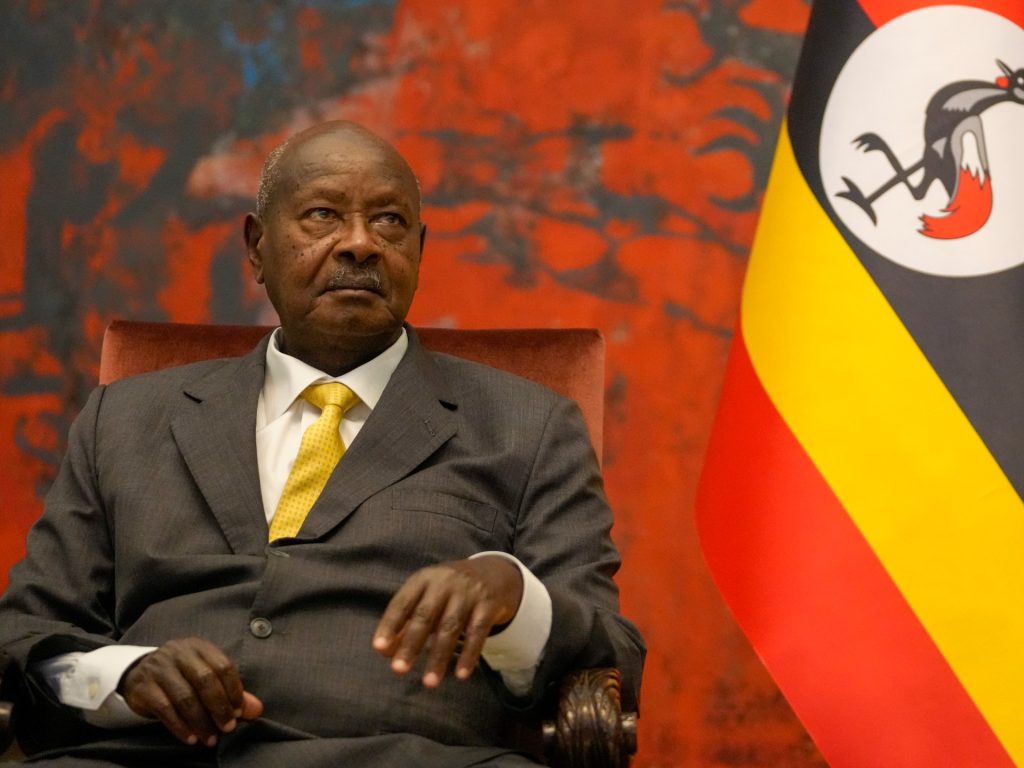
Yoweri Museveni urges supporters to back his vision for the future as he seeks to run for a record seventh term. Published On 23 Sep 202523 Sep 2025 Click here to share on social media share2 Share Uganda’s long-time President Yoweri Museveni has been confirmed to stand in the January 2026 elections, as he seeks to extend his nearly 40-year rule in the African country. Museveni, who has been in power since 1986, on Tuesday urged supporters to back his vision for the future after electoral officials near the capital, Kampala, announced that the 81-year-old leader would be on the ballot. Recommended Stories list of 3 itemsend of list The governing National Resistance Movement (NRM) party officially confirmed him in June as its presidential candidate. In a post on X, Museveni thanked his supporters for entrusting him to run again for the 2026-2031 term. “In this economy, the GDP of Uganda has doubled currently in the recent Kisanja from $34 billion to $66 billion,” he wrote. He has promised to make Uganda a $500bn economy in the next five years. “You have everything today that you lacked in the past: electricity, roads, telephones, manpower, the educated people, and peace. That’s why we are being flooded by many investors because they are looking for a peaceful and profitable area where to invest,” he added. In a list of pledges for the next term, Museveni said the party’s priorities would focus on wealth creation, education, infrastructure, crime, corruption, health and water. Our priorities for this term include: 1. Wealth creation: Everybody should be involved in the money economy. 2. Education: All children in government primary and secondary schools should study for free. 3. Infrastructure: Roads should be tarmaced on time and maintain the… pic.twitter.com/KhDcNeyJaH — Yoweri K Museveni (@KagutaMuseveni) September 23, 2025 Advertisement Museveni came to power in 1986 after his NRM party waged a rebellion to depose the military regime of General Tito Okello. After the NRM won the war, Museveni, the then-leader of the movement’s armed group, declared himself president. Since then, the president has been elected in subsequent elections. In 2017, an amendment to the constitution removed the age limit for presidential candidates, which had been set at 75, allowing Museveni to continue ruling the country. But the leader’s main political opponent, Bobi Wine, a former musician, is expected to be announced as a candidate in the upcoming election later this week. During the 2021 elections, Wine secured 35 percent of the vote, with Museveni taking 58 percent in his worst-ever result. While Wine accused Museveni of alleged voter fraud and ballot stuffing, his performance during the election placed him as the strongest challenger to Museveni’s rule. Wine also has a large following among working-class communities in urban areas, with his National Unity Platform party holding the most seats of any opposition party in the national assembly. Adblock test (Why?)
Donald Trump attacks United Nations during UNGA speech
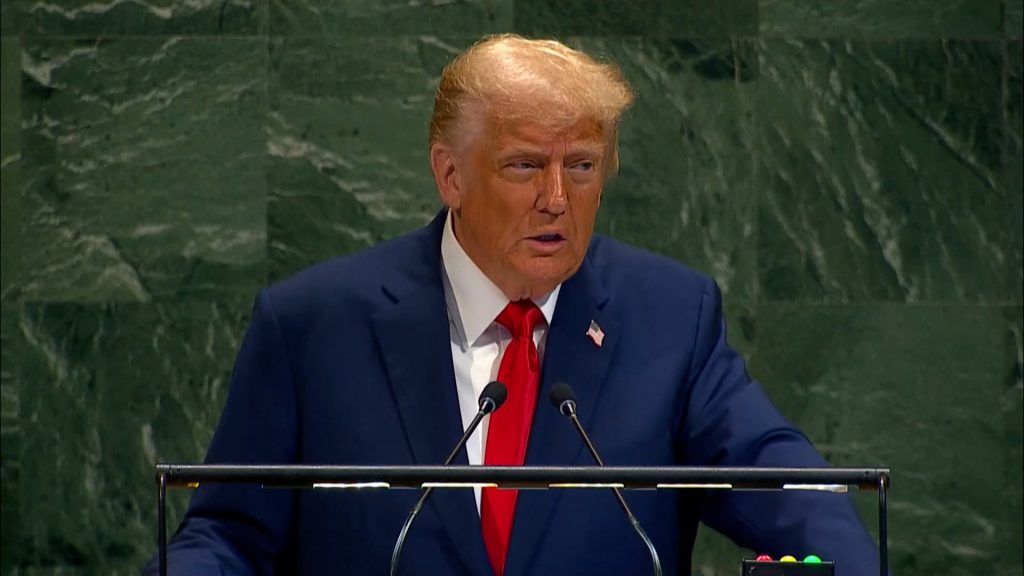
NewsFeed US President Donald Trump attacked the United Nations as he told the UN General Assembly that he has helped to end seven wars – and complained about a faulty UN escalator. Published On 23 Sep 202523 Sep 2025 Click here to share on social media share2 Share Adblock test (Why?)
For China, TikTok becomes bargaining chip amid tensions with US
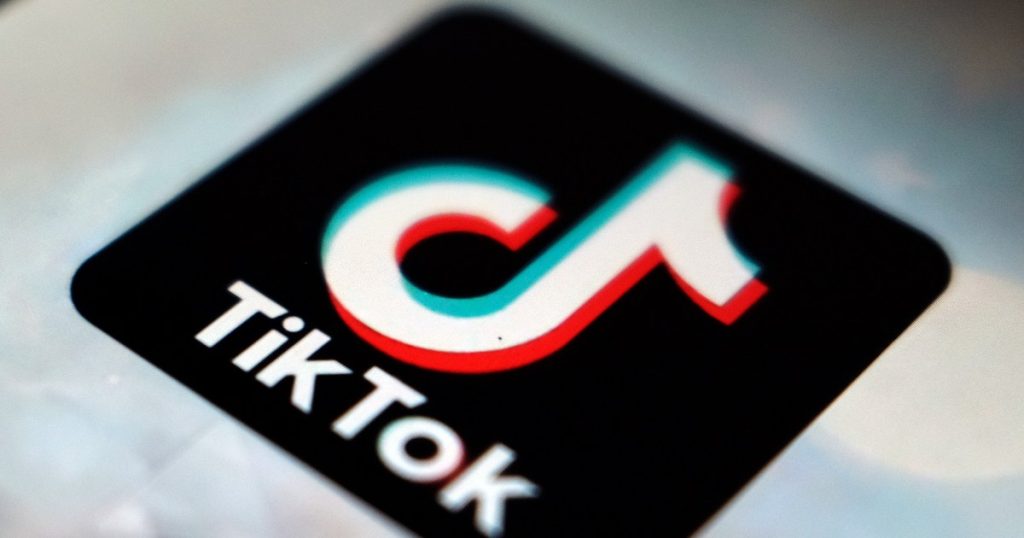
China railed for years against the United States’s bid to force the sale of TikTok, once accusing Washington of demonstrating “robbers’ logic” in response to the platform’s success. Now, Beijing is touting talks on how the video-sharing platform’s Chinese owner, ByteDance, might relinquish ownership of its US operations. Recommended Stories list of 4 itemsend of list The turnaround has raised questions about what China might expect in return, with analysts suggesting that Beijing has come to view TikTok as a useful bargaining chip to win concessions on more pressing issues. China has yet to confirm a deal on TikTok, which Washington has cast as a propaganda tool of Beijing and a threat to privacy, and there are numerous outstanding questions about what a sale would entail. Most crucial of all is the question of who would own and control TikTok’s recommendations algorithm, which has been credited with powering the platform’s explosive popularity in the US, where it claims more than 170 million users. Under Chinese export controls introduced in 2020, companies are prohibited from transferring sensitive technologies like TikTok’s algorithm without government approval. As recently as last month, the state-run China Daily warned in an editorial that the export restrictions presented a “red line for the TikTok transaction”. If China is willing to hand over control of the algorithm, it will expect major concessions on such issues as trade, curbs on Chinese tech, and Taiwan, said Dexter Roberts, a nonresident senior fellow at the Atlantic Council’s Global China Hub. Advertisement “If anything changed on the Chinese side that makes them now more willing to do a deal on TikTok, I think it’s because they sense that they can get a lot more out of the Trump administration than they originally thought, and they may be contemplating using TikTok as a bargaining lever,” Roberts told Al Jazeera. On the US side, President Donald Trump seems eager to reach an agreement on TikTok quickly as part of an effort to lock down his first face-to-face meeting with Chinese President Xi Jinping since returning to the White House, Roberts said. “And in order to get that sit-down and that ‘deal,’ it seems as if he’s willing to give a lot in return,” he said. While both China and the US have hailed the prospects of a resolution to the standoff over TikTok, the sides have offered substantially different accounts of where things stand. In a briefing on Monday, an unnamed senior White House official was quoted as telling media outlets that the Trump administration was confident that China was on board with a deal that would see TikTok’s algorithm licensed out to a new joint venture in the US. Under the terms of the deal, Texas-based Oracle, whose billionaire cofounder Larry Ellison is a staunch backer of Israel, would oversee and retrain the licensed algorithm using US data, according to reports of the official’s comment. Since the start of the 2023 war in Gaza, in which Israel’s attacks have killed more than 60,000 Palestinians, Ellison has committed cybersecurity and cloud infrastructure support to Israel. Oracle’s growing role in TikTok’s future comes after several Republican lawmakers have, since 2023, accused the platform of promoting pro-Palestinian content. The latest White House briefing came after Trump, who has repeatedly extended the deadline for forcing a sale of the platform, said on Friday that he had secured a deal during a nearly two-hour-long phone conversation with Xi. White House press secretary Karoline Leavitt said on Saturday that the spin-off would see TikTok controlled by a seven-member board, filled with six Americans, and would ensure that its algorithm is “controlled by America”. “Both the US and China now support ‘info-nationalism’,” Jeffrey Towson, a digital strategy consultant formerly based in China, told Al Jazeera. “China has long insisted information flows be controlled domestically, and not by foreign companies or entities. The US has now come to the same conclusion. Digital platforms create powerful control points. They can shape and limit what can be said, read and watched.” Advertisement While it is unclear how the sale of TikTok might proceed under Chinese law, an agreement on the platform could mark a de-escalation in trade tensions between Washington and Beijing, said Heiwai Tang, director of the Asia Global Institute in Hong Kong. “If the current additional 30 percent US tariffs on China could be lowered, the gain for China would be significant,” Tang told Al Jazeera. China has only gone as far as to say that the sides have reached a “basic framework consensus” on TikTok. “China’s position on the TikTok issue is clear: The Chinese government respects the wishes of the company in question, and would be happy to see productive commercial negotiations in keeping with market rules lead to a solution that complies with China’s laws and regulations and takes into account the interests of both sides,” China’s Ministry of Foreign Affairs said in a statement after Xi’s call with Trump. China’s language about a “framework” for resolving the TikTok dispute leaves room for negotiations, and “details like who actually gets the algorithm – which, of course, Washington has said the US gets – could still very much be up for grabs,” the Atlantic Council’s Roberts said. Chunmeizi Su, a media and communications lecturer at the University of Sydney, who researches platforms such as TikTok, expressed doubt that the full details of TikTok’s algorithm would be provided in any licensing deal. “TikTok’s algorithm is not just about TikTok; it’s a core technology that has been used among other apps under ByteDance. There is a red line here for the company. I believe they would rather shut down TikTok US altogether than reveal the details of their algorithms,” Su told Al Jazeera. “If this is the bottom line, it means that the licensing deal will only provide surface-level technologies, or, in other words, a shell of TikTok US. And even this will take a long time to achieve.” Though a deal on TikTok would lower the temperature between the
Trump urges pregnant women to avoid Tylenol over unproven autism risk

US president’s remarks on the popular painkiller, better known as paracetamol globally, prompt outcry from doctors and medical bodies. United States President Donald Trump has urged pregnant women to avoid Tylenol, also known as paracetamol, over the painkiller’s unproven links to autism, prompting swift backlash from doctors and scientists. Trump issued the warning on Monday as the US drug regulator announced plans to add a label to paracetamol warning of an increased risk of autism and ADHD in children. Recommended Stories list of 4 itemsend of list “Don’t take Tylenol. Don’t take it,” Trump said during a news conference at the White House while flanked by top public health officials. “Fight like hell not to take it,” Trump said. “There may be a point where you have to, and that you’ll have to work out with yourself.” Trump also cast doubt on the medical consensus on childhood vaccines, suggesting that inoculations for measles, mumps and rubella should be administered separately instead of in the combined MMR shot. “This is based on what I feel. The mumps, measles – the three should be taken separately,” Trump said. “And it seems to be that when you mix them, there could be a problem.” Trump’s comments drew condemnation from medical bodies, including the American Academy of Pediatrics and the American College of Obstetrics and Gynecology (ACOG), which have long recommended paracetamol as one of the few painkillers that is safe for women during pregnancy. About half of pregnant women worldwide are estimated to take paracetamol – which is sold in different countries under brand names including Dyman, Panadol and Panamax – for pain relief and to reduce fevers, which can be potentially dangerous to both the foetus and the expectant mother. Advertisement ACOG president Steven J Fleischman called the suggestions of a link between paracetamol and autism “irresponsible”. “When considering the use of medication in pregnancy, it’s important to consider all potential risks along with any benefits,” Fleischman said in a statement. “The data from numerous studies have shown that acetaminophen plays an important – and safe – role in the well-being of pregnant women.” While some research has found evidence of an association between paracetamol and neurological conditions such as autism, medical experts have cautioned that more robust studies have found no link, and that causation remains unproven. One of the biggest population-based studies, published by Swedish researchers last year in The Journal of the American Medical Association, found no link when comparing children who had been exposed to the painkiller with siblings who had not. Arthur Caplan, a bioethicist at the NYU Grossman School of Medicine, described the Trump administration’s moves as “hugely negative” for public health. “The big reveal about autism was a total bust full of misinformation, a lack of evidence, bad advice and a bogus answer about the cause,” Caplan told Al Jazeera. “I think mainstream medicine will ignore what he said today,” Caplan said. “I think patients can’t trust federal science in the USA and must turn to other reputable sources.” In its updated guidelines announced on Monday, the US Food and Drug Administration cited evidence of a “correlation” between paracetamol use and autism, and noted studies suggesting a heightened risk when the drug is taken “chronically” throughout pregnancy. Still, the drug regulator was notably less emphatic than Trump, noting that a causal relationship had yet to be established, and the existence of “contrary studies in the scientific literature”. “It is also noted that acetaminophen is the only over-the-counter drug approved for use to treat fevers during pregnancy, and high fevers in pregnant women can pose a risk to their children,” the regulator said. Autism has no known single cause, but is believed to be related to an interplay of genetic and environmental factors, according to the American Academy of Pediatrics. Adblock test (Why?)
Super typhoon heads to Taiwan, Hong Kong, China after lashing Philippines
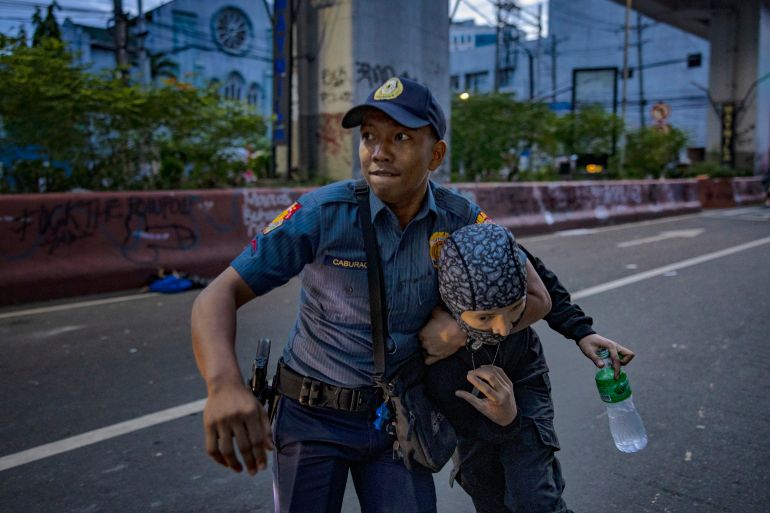
Hong Kong is bracing for hurricane force winds from Super Typhoon Ragasa as southern China prepares for heavy flooding. A super typhoon that caused thousands of people to evacuate from northern Philippine villages is now making its way towards Hong Kong, the southern parts of mainland China, and Taiwan, where people are preparing for more extreme weather. In Hong Kong, officials warned of a “serious threat” from Super Typhoon Ragasa, comparing the risk with some of the most destructive storms in the city’s recent history. Recommended Stories list of 4 itemsend of list “Ragasa will pose a serious threat to Hong Kong, which could reach the levels of Hato in 2017 and Mangkhut in 2018,” Hong Kong’s number-two official Eric Chan said on Monday, referring to two super typhoons that each caused significant damage. Ragasa was generating winds with maximum sustained speeds of 220 kilometres per hour (137 mph) at its centre as it churned across the South China Sea early on Tuesday, according to Hong Kong’s weather service. Hong Kong’s airport will remain open, but there will be “significant disruption to flight operations” from 6pm (10:00 GMT) on Tuesday until the next day, the airport authority said. More than 500 Cathay Pacific flights are expected to be cancelled. In Taiwan, the state weather service predicted “extremely torrential rain” in the country’s east. “Its storm radius is quite large, about 320 [kilometres, or 199 miles]. Although the typhoon’s centre is still some distance away, its wide, strong wind field and outer circulation are already affecting parts of Taiwan,” it said. Officials in Shenzhen, the southern Chinese tech hub, planned to evacuate about 400,000 people, including residents living in low-lying and flood-prone areas. Shenzhen’s airport said it would halt flights, starting Tuesday night. Advertisement China’s National Meteorological Centre forecast the typhoon would make landfall in the coastal area between Shenzhen city and Xuwen county in Guangdong province on Wednesday. Protests over non-existent flood controls in Philippines Ragasa, which is known locally as Nando, forced the evacuation of several villages in the northern Philippines on Monday, a day after thousands of people took to the streets to protest alleged corruption over non-existent flood control projects. Philippine President Ferdinand Marcos Jr suspended government work and all classes in the capital, Manila, and 29 provinces in the main northern Luzon region, on Monday. Power was knocked out on Calayan Island and in the entire northern mountain province of Apayao, disaster-response officials said, as the super typhoon caused wind gusts of up to 295 kph (183 mph) in some areas. There were no immediate reports of casualties or further damage, according to the Associated Press news agency. More than 8,200 people were evacuated to safety in Cagayan province, which includes Calayan, while 1,220 fled to emergency shelters in Apayao, which is prone to flash floods and landslides. Domestic flights were suspended in northern provinces lashed by the typhoon, while fishing boats and inter-island ferries were prohibited from leaving ports due to rough seas. On Calayan Island, at the storm’s centre, information officer Herbert Singun told the AFP news agency that chunks of a school roof had been ripped off and landed on an evacuation centre about 30 metres (98 feet) away, causing one minor injury. “Can you see those coconut trees swaying in the distance?” he asked during a video chat. “There were eight of them before. Now only four are still standing. That goes to show how strong this typhoon is.” Scientists have warned that climate change is already making tropical storms more intense, causing stronger winds and more flooding. A police officer arrests a protester during anticorruption demonstrations on Sunday in Manila, the Philippines [Ezra Acayan/Getty Images] Ragasa, the 14th weather disturbance to batter the Philippines this year, comes as authorities and both chambers of Congress investigate a corruption scandal involving alleged kickbacks that resulted in substandard or non-existent flood control projects. Thousands of people took to the streets on Sunday to protest the scandal involving an estimated 118.5 billion pesos ($2bn) in projects, even as the typhoon affected the weather. Adblock test (Why?)
Cyberattack on European airports caused by ransomware, EU finds
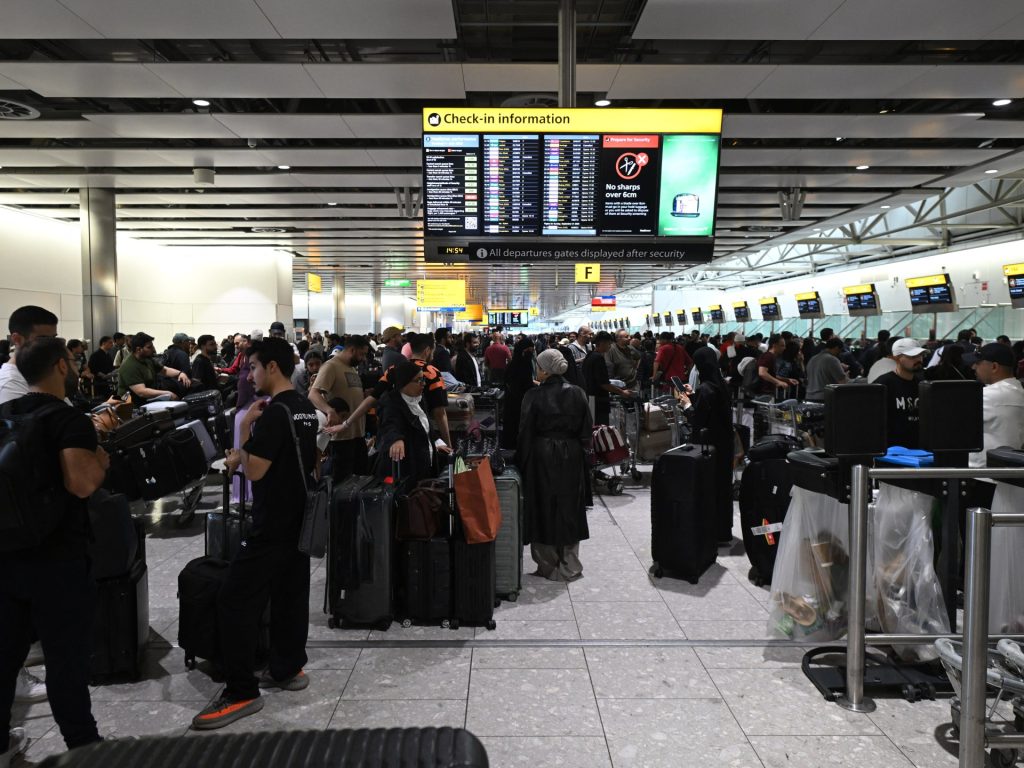
Since Friday, Europe’s busiest airports have faced significant disruptions after hackers hit automated check-in systems. By News Agencies Published On 22 Sep 202522 Sep 2025 Click here to share on social media share2 Share A cyberattack that has caused major airport disruptions in the United Kingdom, Germany and Belgium was caused by ransomware, the European Union Agency for Cybersecurity (ENISA) says. In a statement on Monday, ENISA said law enforcement was involved to investigate the software that holds data until those targeted pay to have their access back. Recommended Stories list of 3 itemsend of list ENISA did not elaborate on where the ransomware had originated. Since Friday night, several of Europe’s biggest airports have faced disruptions after hackers took out automated check-in systems developed by Collins Aerospace, affecting dozens of flights and thousands of passengers. Collins Aerospace, owned by weaponsmaker RTX, formerly Raytheon Technologies, said on Monday that it was working with the airports targeted by the ransomware, including Brussels and London’s Heathrow, and was in the final stages of completing updates to help restore them to full functionality. However, Berlin Brandenburg Airport still did not have its check-in systems restored on Monday, and delays of more than an hour for departures were reported. At Brussels Airport, iPads and laptops were being used to check in passengers online. Among the 550 departing and arriving flights on Monday, 60 had to be cancelled, the airport said. According to Rafe Pilling, director of threat intelligence at the British cybersecurity firm Sophos, there have been more ransomware attempts targeting high-profile victims due to the attention they bring but these kinds of attacks have not been happening frequently. Advertisement “Disruptive attacks are becoming more visible in Europe, but visibility doesn’t necessarily equal frequency,” he told the Reuters news agency. “Truly large-scale, disruptive attacks that spill into the physical world remain the exception rather than the rule,” he added. Last week, the German industry group Bitkom found that in a survey of about 1,000 companies, malicious software was the most common form of cyberattack. One in seven of the companies reported having paid a ransom to access data that had been locked up. It added that the most effective method remained cyberattacks, often carried out with ransomware, and ransom payments had reached a record high of 202 billion euros ($238bn) this year. Adblock test (Why?)
US public opinion on Israel is changing, US policy will have to as well
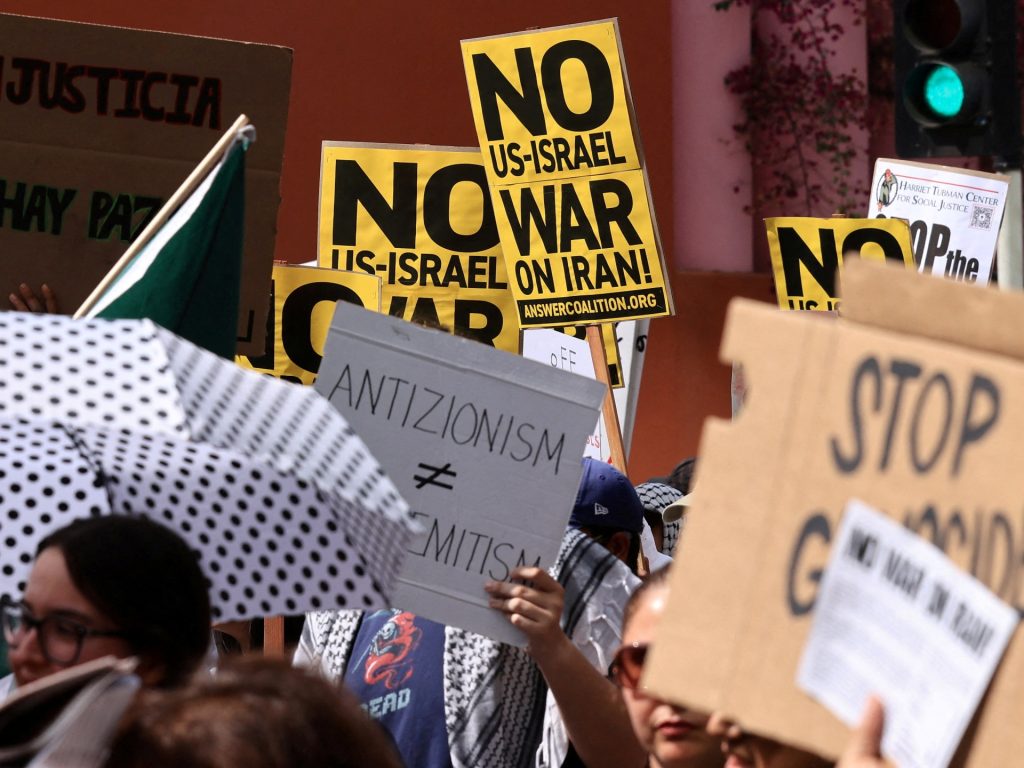
The Zionist narrative has been a dominating force in the United States for more than seven decades. Promoted by powerful lobbies, nurtured by Christian evangelicals, and echoed by mainstream media, it remained largely unchallenged until the outbreak of the genocide in Gaza. In nearly two years, the unyielding images of horror, the scale of devastation, and the shocking loss of human lives have created an indomitable record of horror that has challenged the Zionist narrative. Poll after poll is registering a shift in public opinion vis-a-vis Israel. On both sides of the political divide, Americans are growing less enthusiastic about blanket support for the longstanding US ally. So what does this mean for US-Israeli relations? In the short and medium term, not much. US arms, aid, security cooperation, and diplomatic backing for Israel will barely be affected. The support structure built up over almost eight decades cannot be expected to evaporate overnight. But in the long term, US backing will be reduced. This means Israel will be forced to reconsider its aggressive posture in the region and roll back its plans to rule over all of historic Palestine. What the polls say Polls started picking up a shift in US public opinion, especially among young Democrats, even before the October 7, 2023 attacks. But afterwards, this change appeared to accelerate dramatically. A poll conducted by Pew Research in March this year suggests that negative attitudes towards Israel have risen from 42 percent to 53 percent of all US adults since 2022. The shift is more pronounced among Democrats, from 53 percent to 69 percent for the same period. Advertisement What is remarkable about this change is that it is cross-generational. Among Democrats 50 and older – people who are usually moderate on foreign policy issues – negative attitudes towards Israel increased from 43 percent to 66 percent. Expressions of sympathy have also changed. According to an August poll (PDF) by The Economist and YouGov, 44 percent of Democrats sympathise more with Palestinians, compared with 15 percent with Israelis; among Independents, these figures are 30 and 21 percent. The same poll suggests that a plurality of Americans now believes Israel’s continuing bombing of Gaza is unwarranted, and some 78 percent want an immediate ceasefire, including 75 percent of Republicans. The percentage of respondents who said Israel is committing genocide against the Palestinians was 43 percent; those who disagreed were just 28 percent. More significantly, a plurality – 42 percent – favour decreasing support for Israel; among Republicans this number stands at 24 percent. A Harvard-Harris poll (PDF) from July reveals perhaps the most concerning trend for Israel’s advocates: 40 percent of young Americans now favour Hamas, not Israel. While this is likely a reflection of general sympathy for the Palestinians, it shows significant cracks in the dominance of Israel’s “Palestinian terrorism” narrative among the American youth. The same poll suggested that only 27 percent support Israeli Prime Minister Benjamin Netanyahu, a disastrous vote of no confidence that is far removed from the welcome he has enjoyed at the White House and Congress. How policy may change As older voters – Israel’s last electoral stronghold – make way for younger voters more sympathetic to the cause of Palestinian rights, the political math will shift towards profound political change. The question is no longer if the US will rethink its special relationship with Israel, but when. The special relationship with Israel is one of those rare issues for which there is bipartisan support. Changing that would take a long time. Of course, in the short term, there are some possible changes. If there is a sudden rift between Netanyahu and US President Donald Trump – perhaps even on a personal level – the latter will have the polls to justify a move away from Israel. The clear shift in public opinion would provide him with the political cover that he is listening to the American people. However, such a dramatic change is not likely. What is more likely is that, under pressure from the public, members of Congress will increasingly start shifting on Israel-Palestine. Those who stubbornly refuse may be challenged by younger, more energetic candidates who rebuff funding by pro-Israel organisations like AIPAC. Advertisement The shift in Congress, however, would take a lot of time, not least because there will be stiff resistance to it. Pro-Israel lobby groups regard this as a pivotal moment in US-Israeli history. They will employ their vast resources to eliminate any candidate expressing sympathy for the Palestinians or questioning automatic support for Israel. Furthermore, other issues, such as the economy and various social ills, will continue to dominate political agendas; foreign policy rarely shapes US elections. The transition will not be bipartisan in the near term. Republican support for Israel is more consistent. The Democratic establishment has been under mounting pressure from its base since Joe Biden’s presidency. As younger members gain political ascendancy – as exemplified by the spectacular victory of New York mayoral candidate Zohran Mamdani in the Democratic primary – the Democratic leadership will be forced to change tack. With more pro-Palestinian officials elected into office, especially in Congress, the progressive bloc will grow and intensify the pressure to change policy from within. This process, however, will not be quick enough to immediately improve the situation in Palestine or even stop the looming ethnic cleansing of Gaza. Relief is more likely to come due to international pressure and developments on the ground rather than a change in US policy. Nevertheless, in the longer term, lessened support for Israel from Congress or even a US president would mean the Israeli government would have to change its overly aggressive posture in the region and rein in its adventurous militarism. It will likely also be forced to make concessions on the Palestinian question. Whether this would be enough to establish a Palestinian state remains to be seen. The views expressed in this article are the author’s own and do not necessarily reflect Al Jazeera’s editorial stance.
US targets Brazilian justice’s wife with sanctions; will revoke more visas

Six officials will see their visas revoked following the sentencing of Trump ally Jair Bolsonaro. By Reuters Published On 22 Sep 202522 Sep 2025 Click here to share on social media share2 Share The United States is reportedly revoking visas for six more Brazilian judicial officials while the US Department of the Treasury has imposed sanctions on the wife of a Supreme Court justice. In an expansion of its sanctions targeting Brazil’s judiciary, the administration of US President Donald Trump on Monday imposed sanctions on Viviane Barci de Moraes, the wife of Supreme Court Justice Alexandre de Moraes. Recommended Stories list of 3 itemsend of list It also imposed sanctions on the Lex Instituto de Estudos Juridicos, a financial entity controlled by Barci de Moraes and other family members that the US government believes could serve as a vehicle to evade pre-existing sanctions, a Treasury Department notice said. Shortly after those sanction notices were published, a White House official told the Reuters news agency that the government is revoking the visas of Brazilian Solicitor General Jorge Messias and five other former and current Brazilian judicial officials. Brazil’s Supreme Court declined to comment. Barci de Moraes’s law firm did not immediately respond to a request for comment. Alexandre de Moraes presided over the criminal case of right-wing former President Jair Bolsonaro, who was convicted this month of attempting a coup to stay in power after he lost the 2022 election to current leftist President Luiz Inacio Lula da Silva. He was sentenced to 27 years in prison. His lawyers said they will appeal the conviction although jurists said their chances of success are remote. Alexandre de Moraes himself was hit in July with sanctions under the Global Magnitsky Act, which allows the US to impose economic penalties against foreigners it considers to have a record of corruption or human rights abuses. Advertisement Taken as a whole, the latest sanctions represent a deepening of an ongoing diplomatic crisis between the Western Hemisphere’s two largest democracies. Trump and his political allies have long dismissed the criminal case against Bolsonaro as a political witch-hunt. The US president, who was himself criminally indicted for trying to stay in power after his 2020 election loss to former President Joe Biden, has frequently indicated that he sees a kindred spirit in the former Brazilian leader. Alexandre de Moraes has stood firm on Brazil’s judicial independence after being hit with the US sanctions. “Respect comes from independence. A subservient, cowardly judiciary, one that makes deals just to calm the country down, is not independent,” he said in August. Earlier in July, the Trump administration yanked US visas held by the justice and several of his Supreme Court colleagues. The US also hit Brazil with a 50 percent tariff on most goods. Adblock test (Why?)
Israeli attack kills at least 25 from the same family in Gaza City homes
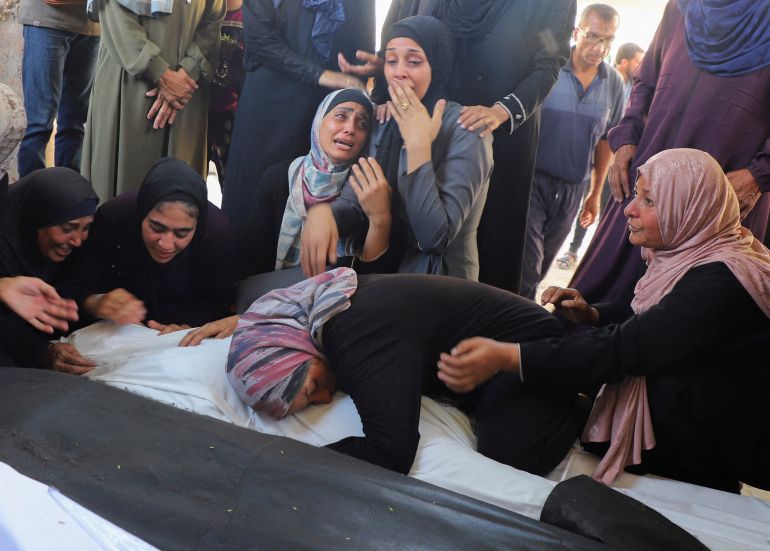
Palestinian family members at the scene say they fear as many as 50 people are trapped under the rubble. The Israeli military has killed at least 25 members of the same family in the Sabra neighbourhood of Gaza City as it ramps up strikes across the besieged enclave. A group of homes were bombed in the early hours of Sunday by Israeli warplanes in the Sabra neighbourhood, where Israeli tanks began advancing in late August as part of a plan to destroy and seize the area. Recommended Stories list of 4 itemsend of list At least 17 people have been rescued in the aftermath of the strike, and rescue work was ongoing as people and emergency responders dug with their hands and family members at the scene said they feared as many as 50 people were trapped under the rubble. The Palestinian family made an urgent appeal for help to try to free others still trapped. Family members at the scene said they could still hear voices from the rubble. “I appeal to the whole world: Please lend us a helping hand,” one family member said. “Our relatives are buried alive. We keep hearing their screams from under the rubble, but we cannot reach them.” He said Israeli drones were firing on rescuers working in the rubble. “Every time we try to reach them, the Israeli drones open fire on us. For every five men making an attempt, four are killed, and only one survives.” Footage circulating online showed casualties being rushed away in a small vehicle surrounded by people. The video below shows a mother crying out that she lost “all of my children” in the Israeli attack in the Sabra neighbourhood, located south of Gaza City. Advertisement Seven Palestinians, including four children, were killed in another Israeli air raid in the Bureij refugee camp in central Gaza, an emergency source told Al Jazeera. The attack reportedly hit near a clinic operated by the United Nations Relief and Works Agency for Palestine Refugees (UNRWA). The Ministry of Health in Gaza reported on Saturday afternoon that at least 65,283 people have been killed and 166,575 others wounded by the Israeli army since the start of the war in October 2023. It said at least four more deaths due to Israeli-induced starvation and famine were recorded over the past day, bringing the total death toll to 440 people, including 147 children. More buildings were blown up by the Israeli military on Sunday as it tries to forcibly displace hundreds of thousands of Palestinians and seize Gaza City despite international criticism and opposition from the families of captives held in the enclave. Mourners react as a relative embraces body bags, during the funeral for members of the Abu Amsha family, who were killed in an Israeli strike on a house on Saturday, according to medics, at al-Shifa Hospital in Gaza City, September 21, 2025 [Ebrahim Hajjaj/Reuters] Many Palestinians are refusing to step outside where they are sheltering since nowhere is safe due to drone strikes and remotely controlled explosive robots planted inside displacement camps and roads, said Al Jazeera’s Hani Mahmoud from the Nuseirat refugee camp in central Gaza. “As of now, people’s movement has been very limited by the use of these explosives. The air is still thick with smoke,” he said. The Israeli military estimates that more than 450,000 people have been forcibly displaced from Gaza City since the start of September. Hamas puts the number at under 300,000 people, saying about 900,000 remain. The Israeli military said on Sunday that three divisions are leading a ground invasion in Gaza City and northern Gaza, with another division operating in Khan Younis in the south. It claimed that its soldiers killed “many terrorists who were on their way to carry out terror plots” over the past 24 hours. Pope Leo spoke out against the forced displacement of civilians in Gaza on Sunday, saying, “Together with the pastors of the churches in the Holy Land, I repeat that there is no future based on violence, forced exile, and revenge.” Adblock test (Why?)
Charlie Kirk mourned as Jimmy Kimmel supporters fear erosion of free speech
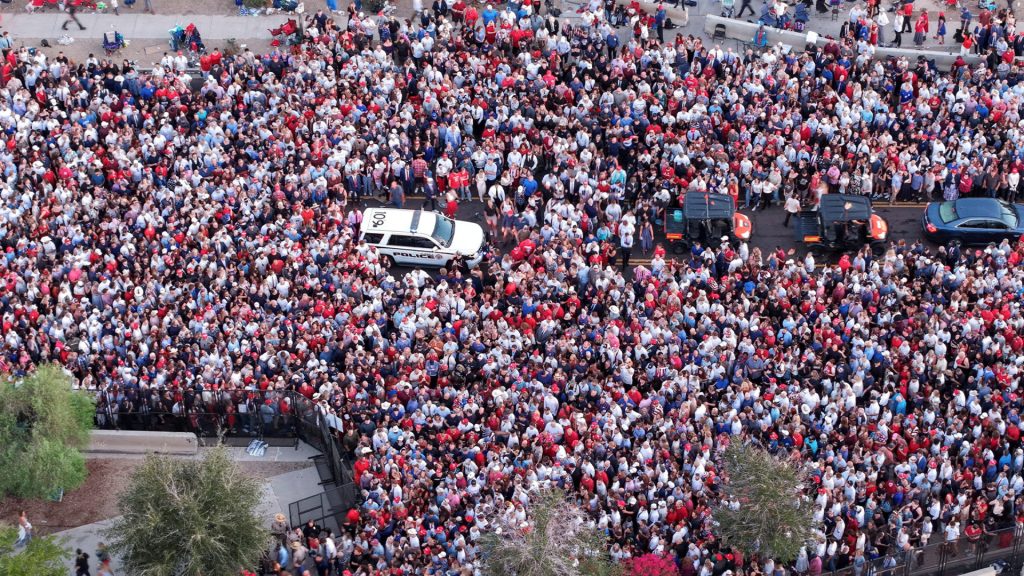
NewsFeed As thousands gather for Charlie Kirk’s memorial, debate rages over a clampdown on free speech in the US. Late-night TV hosts have spoken out in support of Jimmy Kimmel following his cancellation, while President Donald Trump reiterated his view that critical coverage of him is illegal. Published On 21 Sep 202521 Sep 2025 Click here to share on social media share2 Share Adblock test (Why?)

